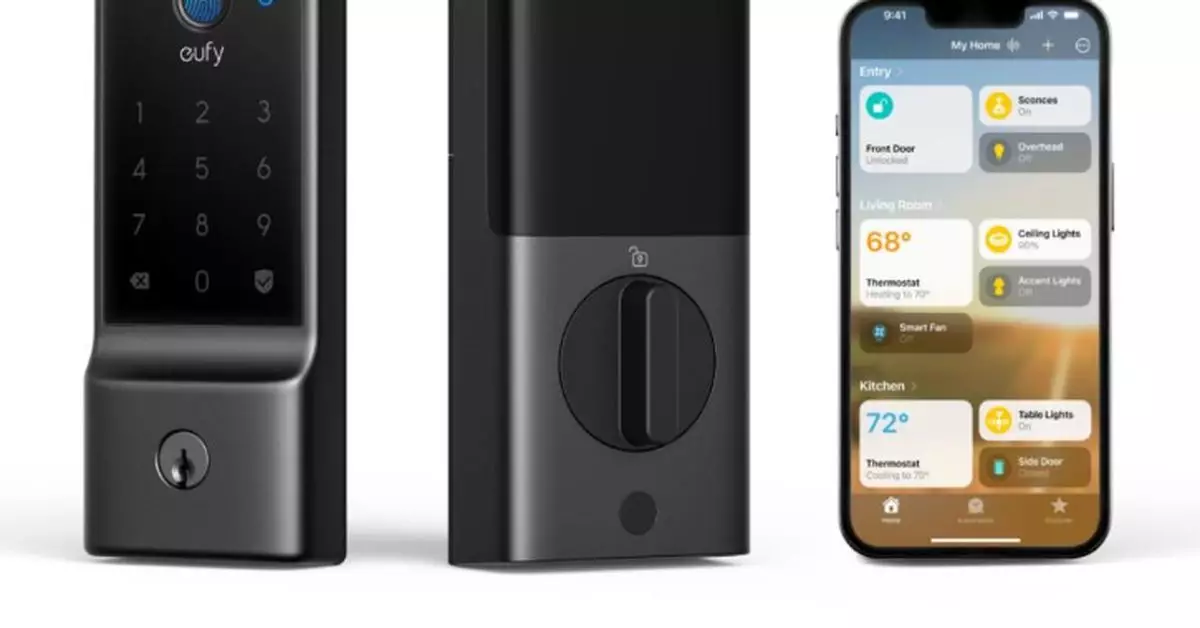Smart home technology has been steadily evolving, with various gadgets designed to enhance convenience and security. The Eufy Smart Lock E30 is making its entrance as a notable player in this field, boasting firsts in technology integration and features. This article delves into its functionalities, the implications of supporting Matter and Thread technology, and its overall positioning in the smart lock market.
The Eufy Smart Lock E30, priced at $169.99, is not just another smart lock; it represents a significant milestone for Eufy, Anker’s smart home branch. As the first Eufy product to embrace Matter—a universal connectivity standard for smart home devices—the E30 is poised to revolutionize how users integrate locks within their smart environments. Unlike older locks that primarily relied on Wi-Fi or Bluetooth connectivity, the E30 utilizes Thread. This connection promises a seamless experience marked by improved responsiveness, extended battery life, and greater connectivity even in low-signal areas.
One of the standout features of the E30 is its hybrid approach to access: combining traditional keys, biometric fingerprint scanning, and a keypad for entry codes. This versatility caters to a variety of user preferences and enhances security by providing multiple layers of access. The inclusion of a fingerprint reader also signifies a growing trend in smart locks—favoring biometric security measures for swift and reliable access. With the Eufy app, users can manage the lock remotely, set schedules for automatic locking and unlocking, and integrate it into their home automation routines.
To maximize its potential, the E30 requires a Matter controller and a Thread border router. These components can exist as separate devices or within a singular hub, such as an Apple HomePod or a Google Nest Hub. This integration allows the E30 to communicate across various platforms—Apple Home, Google Home, Amazon Alexa, and Samsung SmartThings—thereby ensuring that users can include it within their existing smart setups with relative ease. The interoperability provided by Matter facilitates a more inclusive ecosystem, which can ultimately simplify how consumers navigate and control their devices.
Thread technology is a pivotal aspect of the E30’s operations. This low-power, mesh networking protocol is particularly suited for smart locks since they are often located at the peripheries of a home where Wi-Fi signals may be weaker. Thread’s energy efficiency promises to extend the time between battery replacements, an essential consideration for battery-operated devices. The E30 runs on eight AA batteries, providing a claimed lifespan of up to eight months. As discussions continue about smart home devices evolving to support Thread more widely, Eufy appears ahead of the curve in the smart lock segment.
While the E30 enters a landscape with a few competitors—such as the Yale Assure Lock SL and the upcoming U-tec releases—it holds an advantageous position due to its Matter and Thread compatibility. The limited number of smart locks boasting this technology may allow Eufy to capitalize on a burgeoning market. Furthermore, the anticipated development of a rechargeable lithium battery version could appeal to environmentally conscious consumers and those preferring sustainability in their tech products.
Overall, the Eufy Smart Lock E30 signifies a meaningful contribution to the smart home security landscape. With its advanced connectivity features and multiple access methods, it addresses both convenience and security—critical factors for consumers today. As the market awaits more comprehensive releases that support Matter and Thread, Eufy’s timely introduction of the E30 positions it as a potential leader in the smart lock domain. While the initial impressions of Eufy locks have been positive, future user experiences will ultimately determine the E30’s success in an increasingly competitive market.


Leave a Reply